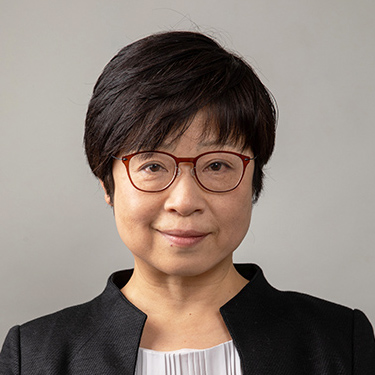
- This event has passed.
Cancelled: Visiting Scientist Seminar: Junko Kyozuka
Jul 19, 2023, 11:00 am
This visit is now cancelled
Location: McLeod Theatre, Charles Hawker Building, Waite Campus
Junko Kyozuka is a professor at the Graduate School of Life Sciences, Tohoku University, Japan.
She received a Ph.D. in Agricultural Science from Tokyo University, Japan, in 1988. She became an associate Professor at NAIST in 1995 after working at Mitsubishi Chemical, Japan, and CSIRO, Australia. Professor Kyozuka started her lab at Tokyo University in 2002 and moved to Tohoku University in 2015. Her research interests include shoot branching, meristem activity, and the evolution of phytohormone functions. To understand problems in these aspects, she works with variable plants, such as rice and bryophytes.

Step-by step establishment of strigolactone function as a plant hormone
Junko Kyozuka, Aino Komatsu, Kyoichi Kodama, Yi Luo, Akiyoshi Yoda, Yuki Hata, Hidemasa Suzuki, Syota Shimazaki. Tohoku University, Sendai, Japan
In flowering plants, strigolactones (SLs) have dual functions as hormones that regulate growth and development and as rhizosphere signaling molecules that induce symbiosis with arbuscular mycorrhizal (AM) fungi. SLs are perceived by DWARF14 (D14), which arose by gene duplication of KAI2, a receptor of an unidentified endogenous molecule called the KAI2 ligand (KL), in the common ancestor of seed plants. Then, repressor proteins for the SL signaling occurred in angiosperms. We reported experimental evidence supporting the hypothesis that SLs originated as rhizosphere signaling molecules and were later recruited as plant hormones. Furthermore, we show that, in gymnosperms that contain D14 but lack the repressors for SL signaling, SLs are specifically perceived by D14, whereas common repressors are used for SL and KL signalings.
We studied the role of KL signaling in bryophytes. In the vegetative reproduction of Marchantia polymorpha, a liverwort, propagules called gemmae, are formed in gemma cups. The KL signaling promotes gemma cup and gemma formation. It appears that the number of gemmae in a cup is controlled by the ON/OFF switch of the KL signaling. In Phiscomitrium patens, a moss species, the KL signaling represses phase change from protonema growth to bud growth. Modulating vegetative reproduction and ensuring the adequate length of each growth phase are crucial for plant growth. These functions of KL signaling in bryophytes may reflect its original role in optimizing growth and development.
- Komatsu et al, (2023) Control of vegetative reproduction in Marchantiapolymorpha by the KAI2-ligand signaling pathway. Current biology. 33: 1196-1210
- Kodama et al, (2021) An Ancestral Function of Strigolactones as Symbiotic Rhizosphere Signals. Nat Commun. 13:3974
- Mizuno et al, (2021) Major components of the KARRIKIN INSENSITIVE2-dependent signaling pathway are conserved in the liverwort Marchantia polymorpha. The Plant Cell. 33:2395-2411
If you would like to meet with Junko on the 19th July, please contact Rebecca Vandeleur: rebecca.coleman@adelaide.edu.au
Webinar link – register here
